Kara Jorgensen (they/them) is a queer, nonbinary oddball with a penchant for all things antiquated, morbid, or just plain strange. While in college, they realized they no longer wanted to be Victor Frankenstein but instead wanted to write like Mary Shelley and thus abandoned their future career in science for writing. Kara melds their passions through their books and graduated with an MFA in Creative and Professional Writing in 2016. When not writing, they can be found hanging out with their dogs watching period dramas or trying to convince their students to cite their sources.
Website: www.karajorgensen.com
Twitter: www.twitter.com/authorkaraj
Instagram: https://www.instagram.com/karajorgensenwriter/
Tiktok: https://www.tiktok.com/@authorkarajorgensen
Bluesky: https://staging.bsky.app/profile/authorkaraj.bsky.social
First of all, welcome to Geeks OUT! Could you tell us a little about yourself?
Thank you for having me. First and foremost, I am a queer, nonbinary, neurodivergent writer of queer historical paranormal books, most with a healthy dose of romance. I like to describe myself as Vincent Price meets Julia Child because I love things others find spooky or macabre, but I also love to teach and encourage others to experiment with their art. My day job is teaching college students creative and academic writing at my alma mater, so I spend much of my time talking about writing. My interests are numerous, but I really love my dogs, art history, crafts (and the history of), crustaceans, dinosaurs, medical history, and of course, queer books and history.
Congratulations on your recently released book, The Reanimator’s Soul! Could you tell us what it’s about and where the idea for the book came from?
So The Reanimator’s Soul is book 2 in the Reanimator Mysteries series. Without giving too much away, book 1, The Reanimator’s Heart, is about Oliver, an autistic necromancer, who accidentally reanimates the guy he has had a crush on for years after finding him murdered. Together, Oliver and Felipe team up to solve his murder and the murder of a nun. In book 2, they are called to investigate a body that was dumped in the middle of a cemetery with its organs missing. The investigation leads them to a mysterious clinic that claims it can remove people’s magical abilities. Unfortunately, Oliver’s obnoxious ex is also working the case, so they all must work together, all while Felipe is dealing with his recent un-death and family obligations.
With this book, I really wanted to explore what it’s like for Oliver and Felipe to navigate the complexities of being magically tied together while Felipe’s family has no idea he’s undead. Felipe and Oliver are both adult men with lives of their own trying to figure out a relationship, their own insecurities, and solve a mystery at the same time. It’s a lot. Most queer romances are one-and-done, but I enjoy exploring what comes next and how they grow as a couple in order to overcome whatever is thrown at them. The Reanimator’s Soul also explores some heavier topics that are as prevalent today as they were in the 1890s, such as conversion therapy, how medicine upholds the patriarchy, and ableism.
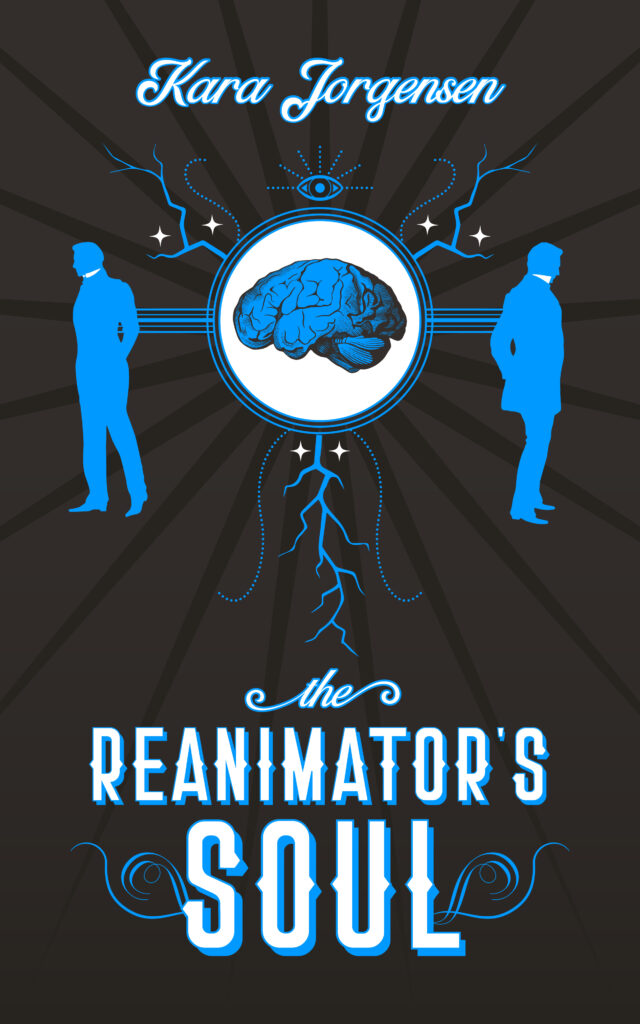
Since Geeks OUT is a queer centered website, could you tell us a bit about the LGBTQ+ characters featured in your books?
Basically, every character in this series is queer. Oliver and Felipe are both cis gay men, but Oliver’s best friend Gwen is also queer (this will be discussed more in future stories). Felipe’s lavender marriage wife, Louisa, is a cis lesbian who is partnered with a bisexual trans woman named Agatha. Most people who work at the Paranormal Society are some manner of queer as that tends to go hand-in-hand with having magic. While the outside world in the 1890s might not have been accepting of queer and trans people, the Paranormal Society is a community where they can thrive.
I didn’t see many characters like me growing up, so something that’s very important to me is portraying disabled and/or neurodivergent queer characters. There are quite a few of them sprinkled throughout my various books with Eilian being asexual, ADHD, and an amputee, Oliver being gay and autistic, and Theo being bisexual and dealing with epilepsy.
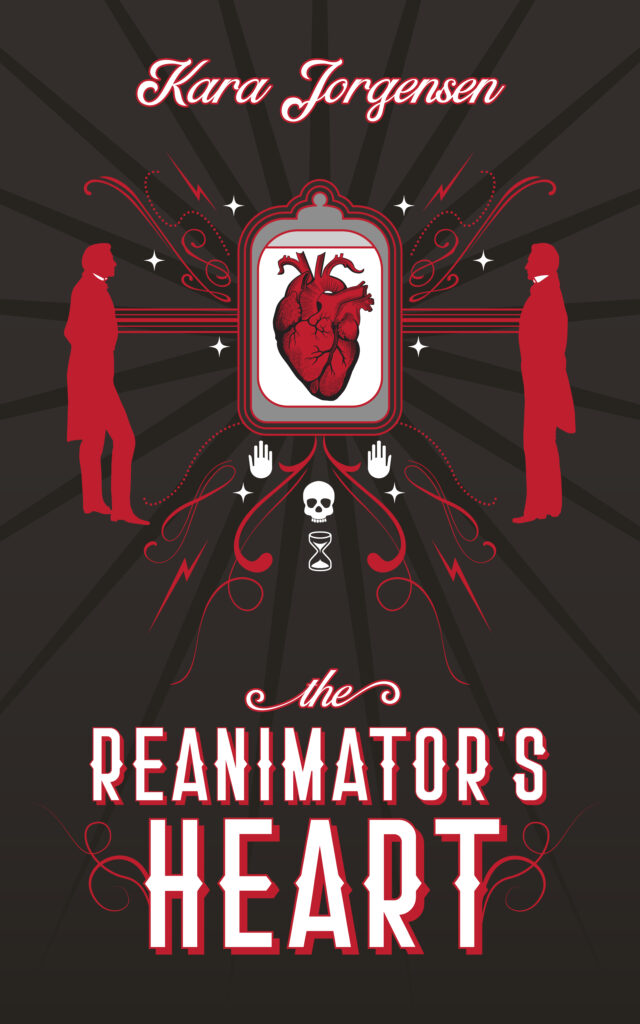
As a writer, what drew you to writing fiction/fantasy, especially that intended for adult audiences?
I’m not exactly sure, but that’s always what I’ve written. Even back when I was a teen, I wrote about adults. I think I prefer the autonomy and complexities of adult characters, but this might be because I didn’t realize I was many layers of queer until I was an adult. The whole young adult coming out narrative often feels alien to me as that wasn’t my experience growing up in the early ‘00s with very little queer rep. It’s also important to me that queer, neurodiverse, and disabled adults are portrayed as people living full lives with people who love them, even if they’re still figuring some things out. There’s a lot of infantilization of neurodivergent and disabled adults, so it’s important to show them doing adult things, and while that does often include sex and romance for me, it’s also things like managing their own lives (sometimes with help) and going on adventures.
Were there any books that touched you or inspired you growing up?
I feel like these will sound very weird yet make total sense if you’ve read my work, but the two series that had a major impact on me as a kid are the Bunnicula series by Deborah and James Howe and Anne Rice’s Vampire Chronicles. The Bunnicula books were my first brush with the Gothic or spooky narratives beyond those Scary Stories to Tell in the Dark books, and I devoured them in elementary school.
Anne Rice’s vampire books were probably my biggest inspiration and what made me want to become a writer. I probably read them too young (I was eleven), but the lush historical settings, sensuality, and queerness drew me in and resonated with me, even before I realized I was queer. I don’t often reread books, but Anne Rice’s The Mummy is one I have gone back to several times as it made me want to write my own archaeology adventure story when I was in college and realize I might be queer.
You do not shy away from making your characters unique, seeming to focus on people with different ways of dealing with the world and those with non-typical behavior living patterns. Can you go into more detail on how that evolved?
I write about this a lot because that’s how I, as a neurodivergent, chronically ill person, move through the world. Often, what is taken for granted as “normal” by neurotypical, non-ill people is wildly difficult and inaccessible for people like me. In writing from the perspective of characters who live in ways that go outside the norm, I hope that people can see themselves or see how they can make things easier for others by pushing back on norms that don’t work for a lot of people. When I wrote my first book, The Earl of Brass, Eilian’s AuDHD comes across as somewhat muted because I wasn’t sure if readers would get him, and I was afraid to be too pointed with the representation. With Oliver in The Reanimator’s Heart, I went full tilt into him being autistic and based a lot of his experiences off my own. If readers don’t like it or think it’s too much, then my books probably aren’t for them, and at this point in my career, I’m okay with losing readers in favor of authenticity.
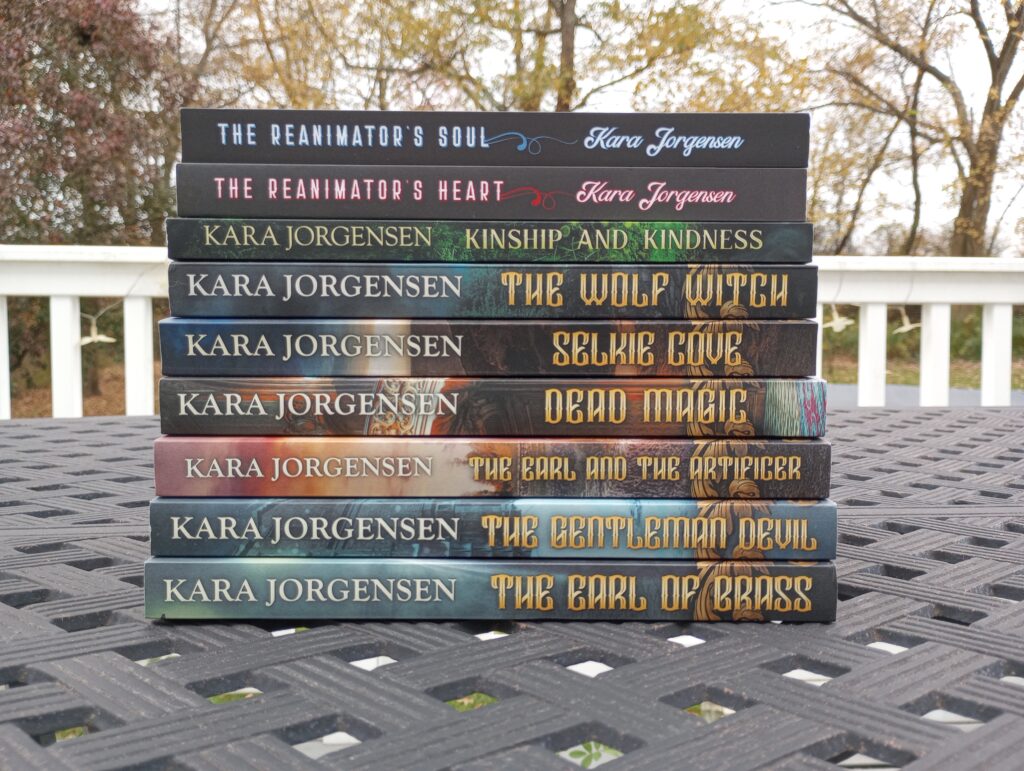
What inspired you to pick the location and time period you’ve set the Reanimator’s Mysteries and Paranormal Society series in?
All of my books so far are set in the 1890s, and when I was writing my first book, I was struggling to decide on the time period until I realized the 1890s were referred to as “The Gay Nineties.” My twenty year old self took this as a sign. After doing research, the 1890s appealed to me because so much of what society was exploring and grappling with, we are as well, such as quack medicine warring with science, anti-queerness laws, and purity culture that was enforced through Comstock Laws that can be seen in modern book bans.
In terms of location, my first six books are set in England, but I wanted to explore my own local history on the East Coast of the US. I’ve grown up traveling to New York City regularly, so setting the Reanimator Mysteries and the Paranormal Society Romances in New York felt right since in the 1890s not only was it a hub of queerness but it was exceedingly diverse.
What’s something you haven’t done as a writer that you’d like to do?
One day I would love to write a Scandinavian-inspired fantasy trilogy. It’s still marinating in my brain and has been for a while. I’ve never written an epic, expansive fantasy before and still don’t know exactly how to do that, so I probably won’t get to it for a while. It’s one of those projects where every once in a while you sit down to think about it, add a few ideas to a running document, then confirm you are not ready and/or skilled enough yet to pull off this idea, and vow to come back later.
What do you wish you had known at the beginning of your writing journey?
That half of writing is maintaining your mental health. I write to help purge my brain and stay mentally balanced, but if things go off the rails, I struggle to write and things go from bad to worse. Early on in my writing and publishing career, I tanked my success several times because I was running myself into the ground instead of listening to my brain and body when I needed a break. My biggest career regrets stem from not allowing myself more time to breathe, recover, and avoid burn-out. When you’re mentally fried, you don’t make good decisions or produce your best work, so if you can avoid that hustle culture mentality, you’re more likely to succeed long-term, no matter what others lead you to believe.
Are there any projects you are currently working on and are at liberty to speak about?
There are a few in various stages of completion/development. Currently, I am writing a Reanimator Mysteries short story set after The Reanimator’s Soul, which will be a freebie for my newsletter subscribers. Felipe convinces Oliver to take a vacation at the beach, and the plan goes completely awry. I think my readers will really like this one; it’s quite sweet and silly.
Once that’s finished, I will be working on the third Reanimator Mysteries book, which involves Oliver, Felipe, and Gwen going to a “murder town” to investigate only to discover the secrets hit far closer to home. I also want to write a story featuring Joe and Ansley from The Reanimator’s Soul, but I’m not sure when I’ll get to that book.
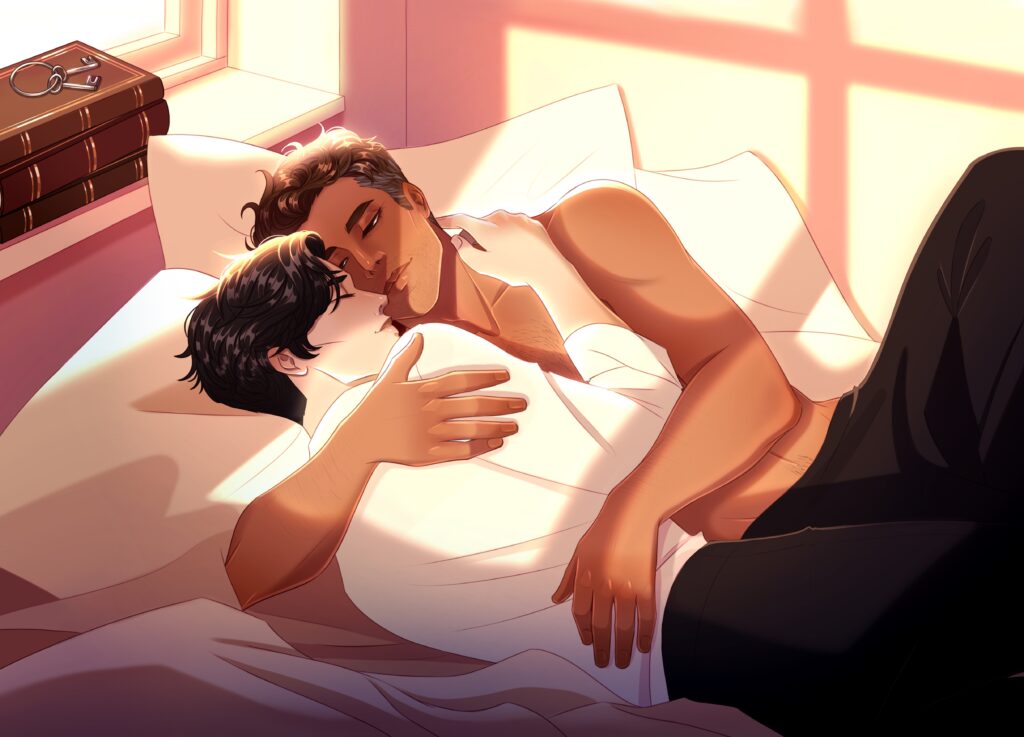
Aside from writing, what do you enjoy doing in your free time?
My two favorite things to do besides writing are crafting and learning. I love to do deep-dives on things I need to research for my books or random topics my partner or I stumble upon (we love to share a good info dump), like uranium glass or how the undead manifest in different cultures. On the crafting side, I started crocheting a few years ago and really enjoy it. I also like to do plastic canvas village kits, painting, and whatever new craft I can get my hands on. I like to joke that every mental breakdown or burnout leads to learning a new hobby.
What’s a question you haven’t been asked yet, but wish you were asked (as well as the answer to that question)?
Kara, what is your writing process like?
I’m not going to lie, I enjoy talking about my writing process because I find the way people’s creative brains work to be fascinating. I know a lot of people sort of go off what tropes they want to put in a book, but my brain immediately goes for who are the two main characters and how do they fit together? For example, with Oliver and Felipe, I knew I wanted an autistic main character and that he should be gothy because that’s the tone I wanted for the story. What works well with that? A necromancer, which then leads into how can a necromancer get in trouble in a story? By accidentally reanimating someone. Even though my stories have magic, my brain is always fixated on logic, so I was like, how could I keep MC2 from decomposing? If he is a self-healer, his body can stave off decomposition. What jobs might be good for a self-healer? Anything dangerous, and that’s how I decided that my two main characters were a monster hunter and a necromancer. Once I have the characters, I struggle for a bit to figure out the conflict and how that fits with the overall theme and growth these characters need to go through.
From there, all my ideas get tossed into a doc and slowly hammered out, but I tend to only loosely outline one act of the book at a time. I’m a plantser/gardener, so I don’t outline too heavily or I lose interest. Each day, I edit the chunk I wrote previously before starting my writing for the day in order to tidy up what I have and reacquaint myself with where I left off. I tend to be a slower writer, but this process works well for me.
Finally, what LGBTQ+ books/authors/creators would you recommend to the readers of Geeks OUT?
This is a very non-exhaustive list, and I’m sure I’ll be kicking myself later for forgetting someone, but here are some of my favorite queer authors and/or authors of queer characters: Anna-Marie McLemore, Nghi Vo, Jordan L. Hawk, Cat Sebastian, KJ Charles, Joanna Chambers, Talia Hibbert, Freya Marske, Azalea Crowley, Arden Powell, Vanora Lawless, Olivia Waite, A. E. Bross, Darcy Little Badger, Sakaomi Yuzaki, Rebecca Roanhorse, and P. Djèlí Clark.

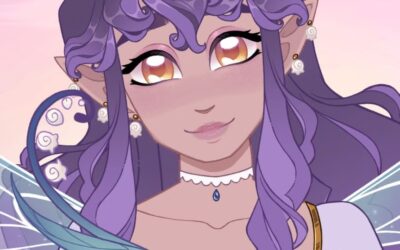
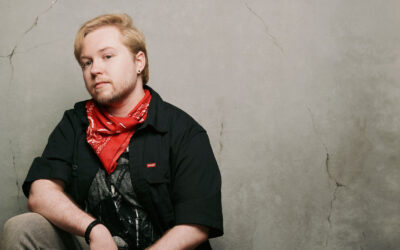
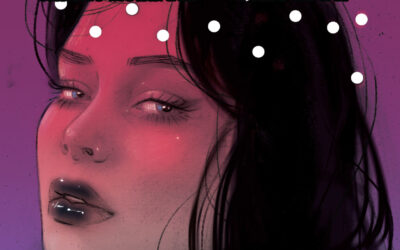
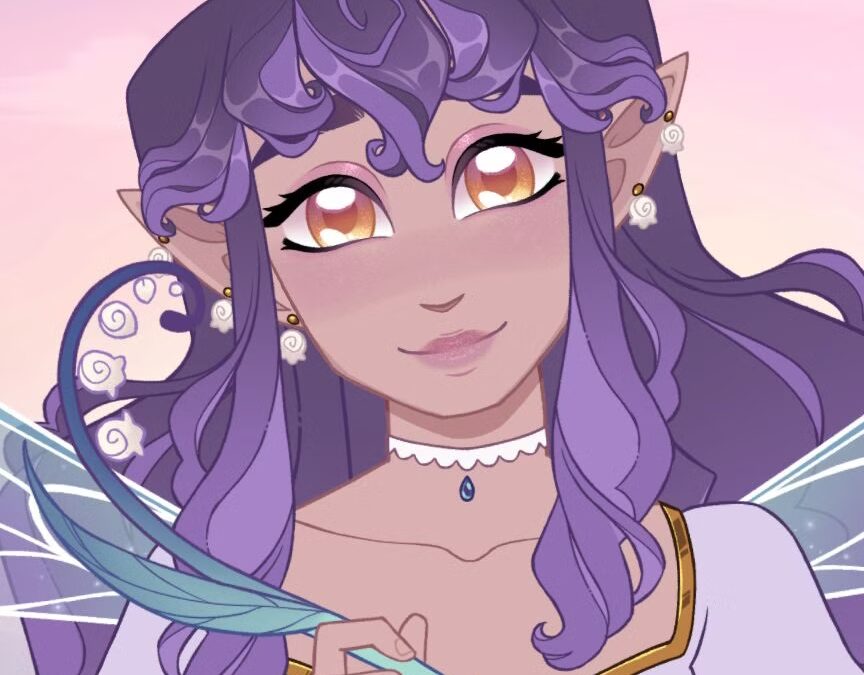
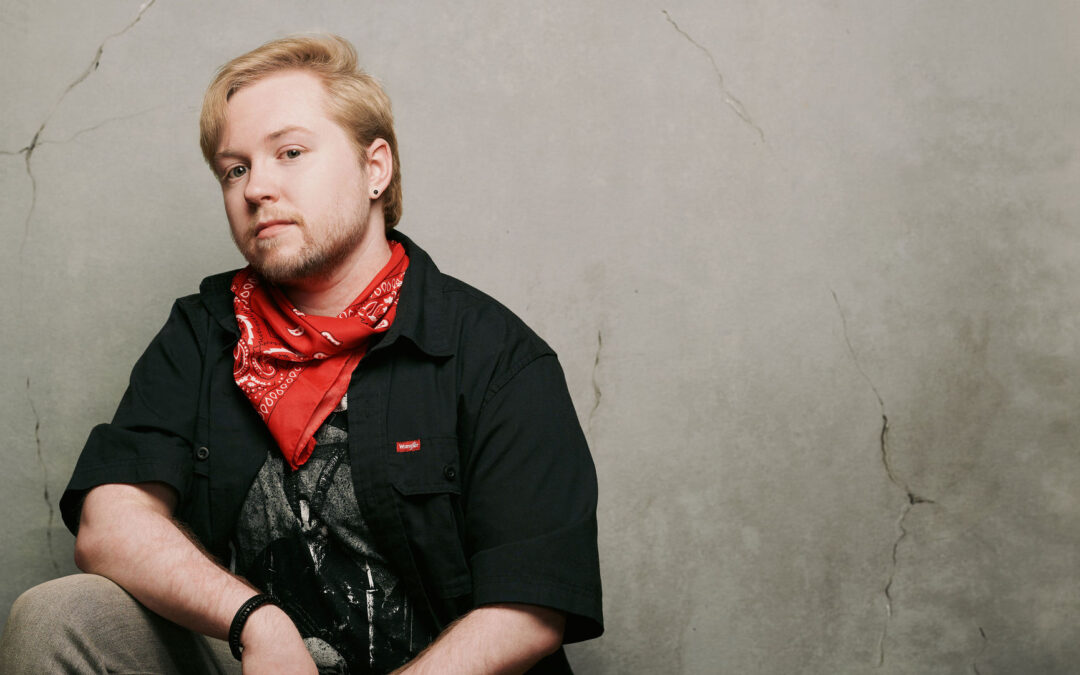
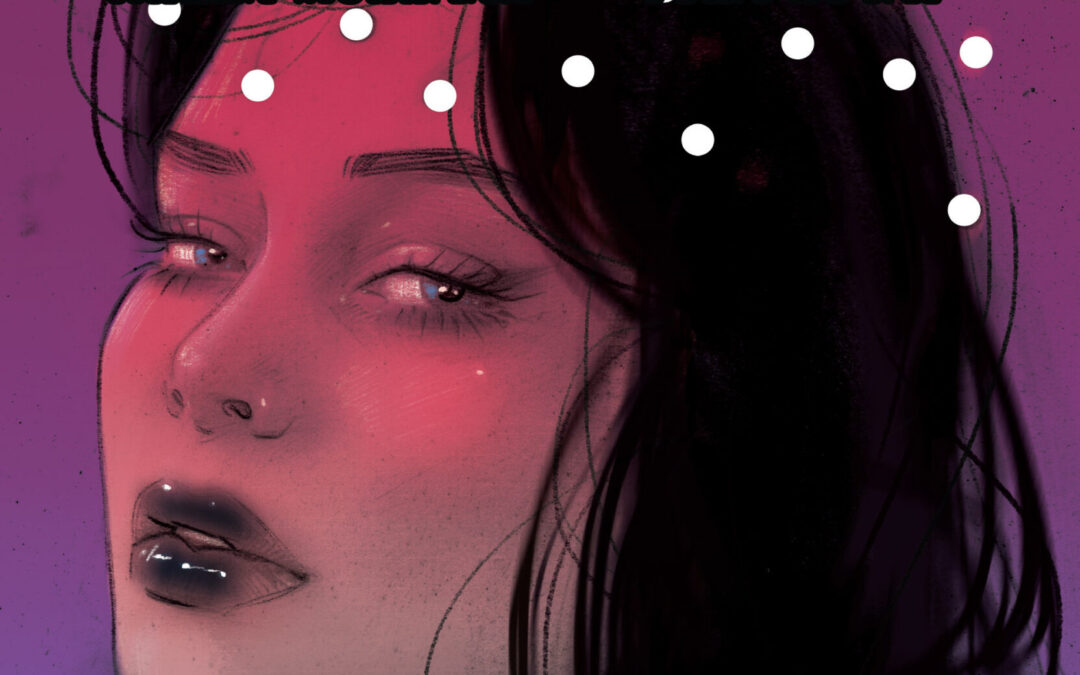
0 Comments